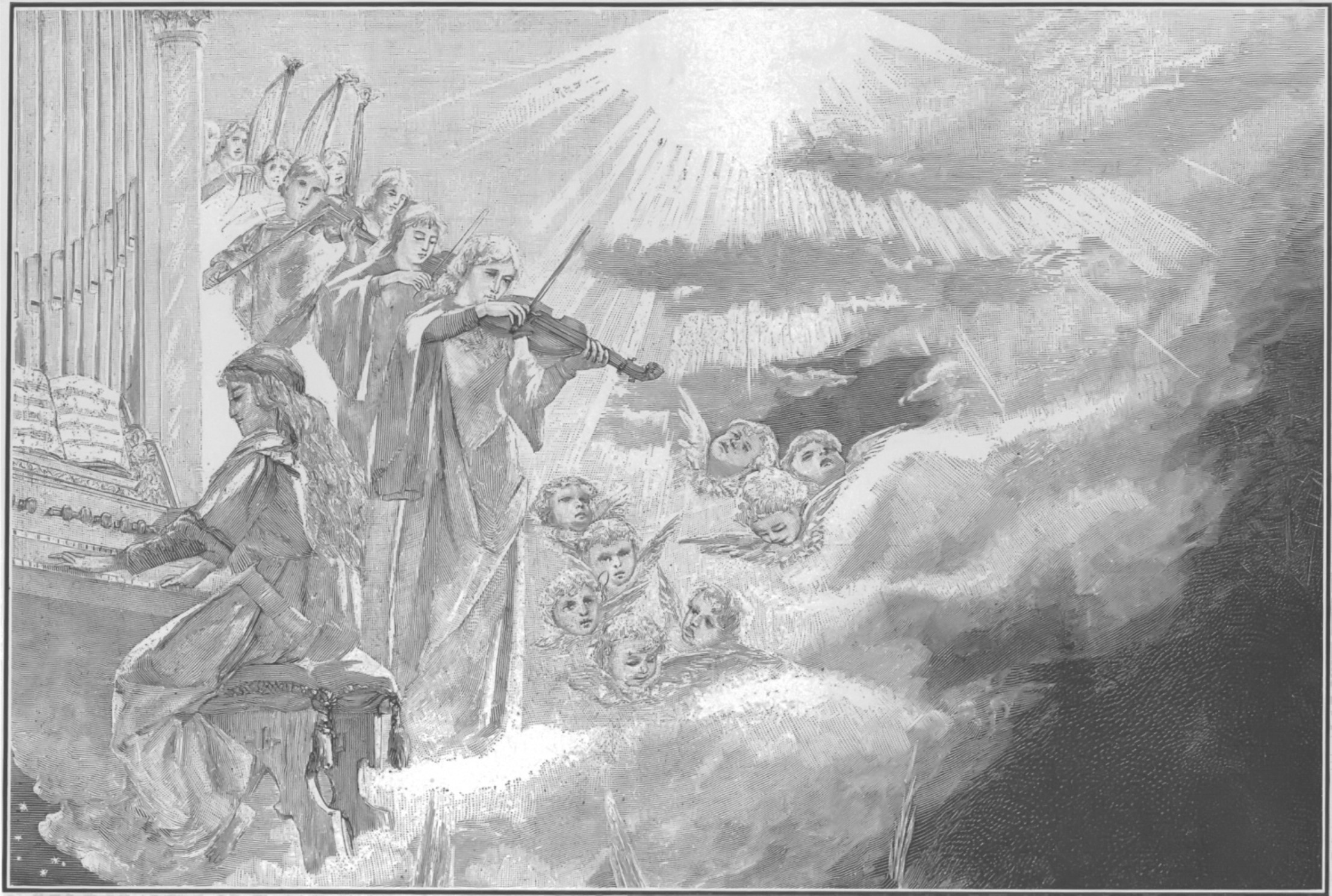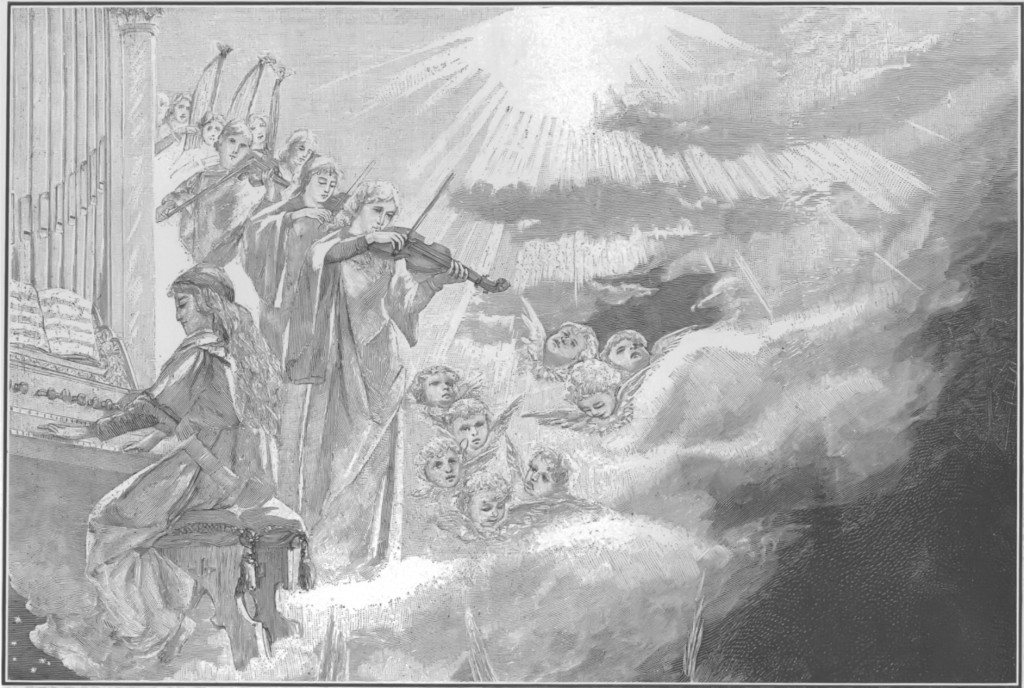This post is a continuation in a series:
—–
Ascribe to the Lord, O heavenly beings,
ascribe to the Lord glory and strength.
Ascribe to the Lord the glory due his name;
worship the Lord in the splendor of holiness. – Psalm 29:1-2, ESV
I’m continuing this series today not so much with a principle, rather with a practice. This practice is a discipline and an exercise, and something I am not at all perfect at. This is a discipline very closely related to my first post in the series (Everything Must Point to the Gospel). Whenever I am reading and studying any text in the Bible, I try to answer the following question:
What reading and understanding of these verses or passages gives God the most glory, honor and praise?
Our God is in himself beyond comprehension in his holiness and perfection. He is the creator of all things, seen and unseen. He is completely sovereign over all things. He is so caring and loving that he would sacrifice himself for sinners who are running far from him.
Words cannot describe his beauty and magnificence! Truly, there is nothing or no one like him. It is because of his goodness, perfection, power and holiness that he is absolutely deserving of our glory, honor and praise. But what does that look like for us? Part of becoming Christian is realizing that we don’t give God the glory he deserves on a daily basis. At its root, this tendency comes from our sinful nature. We all have it, and we all do it. This sinful nature is something that only God through the Holy Spirit can remedy in us. Only he melts hearts, and only he draws sinners to himself.
So what then is our responsibility? God has left his Word with us, the Bible. This Bible is absolutely littered and saturated with descriptions of God as glorious, holy and worthy of praise. Seriously, just do a word or index search on any of those words and it is everywhere. What do we do with that? How should that impact our reading of the Scriptures?
Our handling of the Biblical text must ultimately point to God’s glory, his holiness, his goodness, and lead us to honor and praise him in everything we do. If we do anything but that, then we are making a mockery of who He is. If we seek to undermine the text, write it off as not authoritative, explain it away, read ourselves into the text and make it all about us, or anything of the sort then we are staining something that is perfect and holy.
All that to say, I’ve found the discipline and practice of trying to answer the bolded question very helpful, practical and biblical in my Christian walk. Perhaps a common example of this concept might help. One passage and its interpretation that has completely changed by my application of this discipline is Matthew 14:22-32. In this passage, Jesus comes to the disciples in a storm while walking on water. The climax of this passage is Peter being commanded by Jesus to come out to him on the waves, but watch out! The wind and the waves cause Peter to become afraid and he starts to sink in the water. The passage concludes with Jesus asking “O you of little faith, why did you doubt?”
The most common application of this passage that I’ve heard goes something like this: you and I are Peter, and the wind and the waves are all of life’s problems – stop looking around at the waves, and start looking at Jesus. Even typing that summary makes me a little nauseous. Is that really what this passage is about? I believe that application serves to demean and exalt ourselves by reading us into the passage. That isn’t to say that God doesn’t care about our problems, and that he isn’t Lord over our circumstances, because he certainly is – this just isn’t the passage to make that point (more on this in part 5).
This passage must be and is about God’s glory. And his glory is on display through the demonstration of Christ’s divinity and control over nature, the properties of matter, gravity, etc. He is power. Moreover, this passage displays Christ’s sovereignty in those whom he calls to himself. Peter acknowledges that it is Christ who does the calling, and he is incapable of coming unless it is granted to him by Christ. God’s divinity and his sovereignty are what are on display in this passage, and nothing less.
Just like anyone else, I am imperfect in much of my understanding of the Scriptures. I have my weaknesses and my blind spots, and I often err in my understanding. However, I think this practice is a helpful one. If there is one thing we can be confident on it is this: we can never give God too much credit, too much honor, and too much praise. He is worthy of it all.
To our God and Father be glory forever and ever. Amen. – Philippians 4:20, ESV
This is the continuation of a series:
3) The Entire Bible is in God-Inspired Reconcilable Harmony
This point is probably the most crucial, yet most difficult pill to swallow. In an age where rationalism and empiricism are highly valued over faith, the rational thought and empirical evidence are pitted at odds with faith and its commonly accepted that there is absolutely no way the Bible is God-inspired, let alone at harmony with itself. On the opposite end of the spectrum, faith is pitted against rational thought because the only thing that’s important is “my relationship with Jesus – after all that intellectual stuff is left for the scholars at the seminaries.” Both schools of thought, and for the Christian the latter view is completely unbiblical. Is it necessary to take the Bible as one inspired non-contradictory text? My answer is ‘yes’, and I say so for three reasons; 1) because the Bible speaks of itself authoritatively, 2) it charges us to think critically about the text and 3) because of the temptations set before us when the Scriptures are read any other way.
There is no place in the Bible where it doesn’t speak of itself as authoritative and cohesive. The most popular text referenced for this is 2 Timothy 3:16, “All Scripture is God-breathed…” The Apostle Peter refers to Paul’s writings as Scripture. Throughout his writings, Paul routinely defends his Apostolic authority (in contrast to the heretical people he is addressing in his letters), and the Hebrew Scriptures of the Old Testament were what Jesus himself taught from and spoke of as being authoritative. It is common today for people to pick and choose the passages they like out of the Bible and those they don’t (more on this later), but that is being logically inconsistent. There is no reason to accept any of the Scriptures as God-inspired and others as not, so when we approach the text it is logical and necessary to approach it as one cohesive unit.
This is not to say that our faith in the text nor our assumptions should be blind nor on a whim. Accepting the Bible as an inspired cohesive unit fuels intellectual rigour. Admittedly, there are some difficult and challenging things in the Biblical text. There are some points that appear to be inconsistent or contradictory. We could easily write these things off if we didn’t accept the text as inspired, however that would do disservice to the intellectual exercise that Scripture is in part meant to provide. As Christians, we are to think hard and seriously about our faith, and press in deep when we come across things that don’t at first glance make sense. That is what it means to love God with all our mind, a third of the greatest commandment that we cannot ignore.
In addition, I believe there is a healthy level of questioning, skepticism and doubt that can fuel our Biblical studies. This skepticism and doubt should never undermine the bottom line that we believe the text to be inspired, but nonetheless skepticism and doubt can serve to motivate our studies. This isn’t a concept foreign to the Scriptures. Take for example the Berean Jews in Acts 17, who “received the word with all eagerness, examining the Scriptures daily to see if these things were so.” Further, it was their intense examinations of the Scriptures that caused many of them to be led to belief. The Bible routinely commands Christians to be prepared to give responses about their faith to others (2 Timothy 4:2, 1 Peter 3:15), and knowing the truth of Scriptures is meant as a defense against deceitful heretical teachings. Even some of those who witnessed the resurrected Christ in Matthew 28 were doubtful – “Many worshipped him, but some doubted” (verse 17). It’s not as if one guy was standing there saying “Some magic trick this is”, and another is saying “It’s not a trick, its called an illusion.” No! Even after seeing the resurrected Christ some still had doubt – so I think it’s healthy today to have some level of doubts and skepticism so long as it doesn’t undermine our faith itself. Skepticism and doubts can be healthy fuel for deeper Bible reading.
Lastly, the temptations that face us if we don’t regard the Bible as one God-inspired cohesive unit are too great. We can trick ourselves into thinking we have the intellectual abilities to filtering out what isn’t necessary and what is, but at the end of the day we are giving into crafting a God that we are most comfortable with. Take for example the condemned deeds of the flesh in Galatians 5, “...sexual immorality, impurity, sensuality, idolatry, sorcery, enmity, strife, jealousy, fits of anger, rivalries, dissensions, divisions, envy, drunkenness, orgies, and things like these” (verses 19b-21). If I don’t regard the Bible as God-inspired, then really I can just remove any of these works of the flesh from the list that I want. So thoughts like this begin to happen: Anger isn’t that bad, because some people are really frustrating. And if anger isn’t that bad, then I suppose losing control and drinking too much on the weekends isn’t so bad. After all, we’re only having a little fun right? And if I’m really going to have fun, then I should probably hook up with a few more people. After all, there isn’t really a reason to be faithful to one person since I have urges to satisfy. Picking and choosing what we want to believe from the Scriptures is a slippery slope that can only lead us away from God into the comforts of our own minds.
This is an intentionally short high-level view of why I regard the Scriptures as cohesive and inspired, as well as why I think it is necessary to do so. Books have been written on the subject, and I didn’t even get into empirical/rational arguments for the cohesiveness of Scripture. Those arguments are certainly important, but at the foundational level I have explained three basic reasons to regard the Scriptures as one unit.
Questions or comments on this subject? Feel free to comment or send me a note!
This post is a continuation of a series entitled “How I (Try To) Read My Bible”. For the first entry in the series, click here.
2) Our God is AWEsome
If you’re anything like me, regular Bible reading can easily become a mundane chore. Reading the text day to day, week to week, we soon forget the very reason we’re reading the text in the first place. Of course this doesn’t stop us from continuing in our daily readings, hoping to at least gather something from the text and to appear Christian-esque to our church going friends.
This is external religiosity at its peak, and something I’m constantly guilty of. I know I’m supposed to be reading the Word constantly, but what happens when I don’t feel anything from it? What happens when I catch myself having read through two or three chapters and not being able to recall anything I just read?
Paul Tripp, a pastor and author, calls this the danger of familiarity. The more we spend time with God’s Text, the less we tend to revere it. We forget exactly what we’re dealing with. As we try to become better students of the Bible, we lose our focus and it turns into a daily routine.
If you believe in any capacity that the Bible is holy text, and is inspired by God, then the words on the page should fill you with awe. The Bible is meant to tell us about the nature, character and power of God – and he is worthy to be praised. Regular Bible reading should never become a mundane exercise.
In Psalm 145, David writes “Great is the Lord, and greatly to be praised, and his greatness is unsearchable.” God’s greatness is beyond our human understanding, and yet he chooses to reveal himself to us through His Word and the guiding of His Holy Spirit. Christian, how can we ever let our Bible reading become dull and dreary? On the contrary, our regular reading should be cause for praise and worship as we draw closer to the One God. Oh, how great he is that such a great and loving Father would choose to commune with us through His text!
The Bible is absolutely saturated with passages speaking of God’s greatness and glory. Shouldn’t this tell us something? Ought this to inform our consistent Scripture reading? The prophet Isaiah writes this, “Have you not known? Have you not heard? The Lord is the everlasting God, the Creator of the ends of the earth. He does not faint or grow weary; his understanding is unsearchable” (Isaiah 40:28). If we truly believe what we say we believe, that the Creator of the universe would choose to commune with us through a book, how magnifying of His glory should our time with the Bible be!
Of the points I will write about in this series, this is probably the one I struggle with the most. I quickly forget the reason why I have the Bible at my disposal, and indeed its regular reading and study loses focus for me. I am grateful of the times I catch myself in the act of this, and it is in these times I have to pause and confess my sinful lack of awe towards my Creator.
If this is you too, I’d encourage you to also confess and pray the next time you catch yourself losing your awe of God during your Scripture reading. Continue to pray daily that God would fill you with a new sense of awe and reverence for His Word, allowing it to lead you to magnify Him. He is worthy of our praise.
All but left with no breath and awestruck. That’s wonderful.
This is cause to pause to give thought to it. Selah!
Say ya’ll ever thought about that there’s never been an identical sun rise?
So wonderful.
Wrapped in jackets of amber and stands with universe
in hand and our tears in bottles. He collects them.
Lined in perfect symmetry across the shelves of the throne
room. Next to the full and accurate accurate count of every electron
everywhere and every follicle of hair on our head.
Modern psychology would call it obsessive compulsive.
But that’s only if he ain’t had the bandwidth, I call it love and it’s wonderful.
Would we with ink the ocean fill and the expand of the sky be stretched in parchment. Would we line with canvasses the walls of our hearts apartments?
Any attempts to capture his image would fall short
and everything that he do to me is such a beautiful eulogy.
-Propaganda
Bible reading is both an art and a science. The Holy Scriptures are meant to pierce all of our heart and all of our mind. We cannot neglect the expressive, emotional aspect the Bible carries into our lives. These things are important as we draw nearer in our relationship to Christ. However, we cannot neglect the intellectual and rational minds our God has given us; Christianity is a thinking-man’s religion.
I’m not sure if there isn’t one person who doesn’t struggle with giving either their heart or their mind more weight than it is due. I know this is something I regularly struggle with. On the one hand, we can turn Christianity into a feel-good self-improvement program that is all about positive feelings. With no backbone and having never been encouraged to actually think about the text, people misrepresent or leave the faith in countless numbers.
On the other hand, it is entirely possible to academize and intellectualize the faith. Pursuing only knowledge, people lord their education over others while failing to magnify our great God and apply it to their lives. These are two extremes that we must take care to avoid at all costs.
It is my intention in this post to provide some insight as to how I attempt to avoid either extreme. The things I list in these posts will inform future articles and I will likely reference them often.
1) Everything Must Point to the Gospel
I am so thankful for gospel-centered preaching. It is the food that nourishes, supplies and helps further Christ’s church today. Living in a time post-Christ, we have been gifted and blessed with God’s full revelation in Jesus. Because of this, when we read the Biblical text it is essential we read it in light of the life, death and resurrection of Christ. There is no aspect of the Scriptures that shouldn’t inform our view of Christ in some way.
This is easy for most of the New Testament. The gospels all tell of the life and redemptive work of Christ, and the remaining epistles all continually point back to Christ. The area we struggle with this the most is in the Old Testament. Since this is pre-Christ and often appears to be a series of unrelated stories, we so easily fall into the trap of forgetting the text is all about God-man.
A helpful text for this is Luke 24:27, “And beginning with Moses and all the Prophets, he interpreted to them in all the Scriptures the things concerning himself.” The key words here are all the Scriptures. There isn’t one text in the Old Testament that doesn’t inform us to Christ’s work on the cross, and we must therefore engage all of our faculties in understanding the Old Testament in light of the gospel.
Instead of figuring out what the Old Testament stories tell us about Jesus, our first inclination is to instead read ourselves into the story. So we ask questions like “What does this mean to me today?”or “What does this tell me about God working in my life?” These are healthy questions to ask, and can bear good fruit in our lives. These questions however should not be our starting point.
It is instead necessary for us to first ask Christ-centered questions such as “What does this passage tell me about Christ?” or “Where is Christ in this Old Testament account?” Starting with such questions will diminish our desires to read ourselves into the text, and will instead elevate Christ’s position to its proper place.
There are two examples of this that will be helpful for this discussion. The first of these is the story of Joseph and his brothers. Having been completely abandoned and betrayed by his brothers, Joseph is sold into slavery. The great climax of this story is when Joseph says “As for you, you meant evil against me, but God meant it for good…” (Genesis 50:20). We like this text, and we use it in hard times as reassurance that God will bring us out of whatever hole we are in (pun intended). But is this really the meaning of the text? Is this text about how God will be faithful to us and do good things for us?
On the contrary, this text is centrally and entirely about Christ. It is a shadow of the life and sufferings Jesus will endure on our behalf. Like Joseph, Christ would also come and declare his rightful place among the nations – and be rejected for it. Like Joseph, Christ would be betrayed and abandoned by those closest to him – Judas and the other disciples. Like Joseph, Christ would be restored and elevated amongst the people.
Another common example in the Old Testament would be the account of David and Goliath. We all know how the story goes, the little shepherd boy kills the great Goliath with nothing but a slingshot and a sword (after Goliath is knocked unconscious, of course). Today the temptation is to understand this story as allegory. We read ourselves as David and Goliath as all of our life’s problems! If we are as faithful as David, God will help us overcome our difficulties.
Again, this is not the meaning of the text. Arriving at this conclusion is the result of asking the wrong questions. What does this text tell us about Christ? Where is Christ in this story? Similar to Joseph, David is a shadow of Christ in the Old Testament. We are not David – Christ is. Like David, Christ is the unlikely hero who will fight the battle that we could not fight. Christ takes our place, as did David for the Israelite army. It is crucial that this is our starting point for this story. We no longer read it as what God will do for us, but instead we read it as what God has already done for us through Christ.
Before I wrap this thing up, I must briefly mention our understanding of the New Testament. While it is easier for us to see Christ in the New Testament – especially the gospels – we still often start with me-centered questions. The same Christ-centered and gospel-centered approach must apply to the New Testament.
Helpful for our understanding is a passage again from the book of Luke. Luke records the following comment in his gospel from early on in Jesus’ ministry, “When the days drew near for him to be taken up, he set his face to go to Jerusalem” (Luke 9: 51). In the Gospel of Luke, this is only 9 of 24 chapters into the gospel letter. From the beginning Jesus had a mission, and his mission was to come to this earth to take our place and pay a punishment we deserved in our place. Known as the Fathers “Great Commission” to the Son, the prophet Isaiah records a similar idea centuries before Christ walked the earth: “I will make you as a light for the nations, that my salvation may reach to the end of the earth” (Isaiah 49:6). When we read the New Testament, even in the accounts in the gospel letters prior to the crucifixion, we must read and understand the text in light of the gospel.
That’s all for today. I quickly realized while writing this that what I intended to be one post must be broken up into four or five posts. Come back tomorrow for more thoughts on how I (try to) read my Bible.








